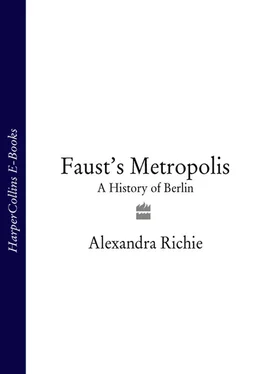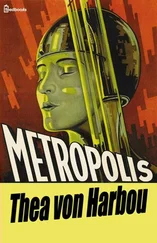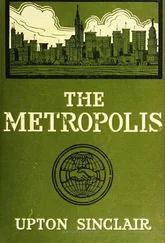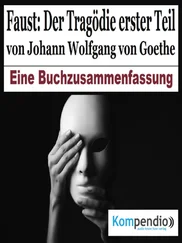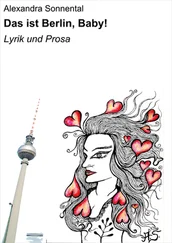1 ...7 8 9 11 12 13 ...30 The equally compelling stereotypes created by outsiders are persistently countered by Berliners. The city may be accused of being the focus of Romantic German nationalism, but Berliners point to the legacy of Nikolai and Mendelssohn, to the Enlightenment and to their ‘tradition of tolerance’. Nearly 4 per cent of Germans may claim to dislike Berlin because it was the centre of Prussian militarism, but Berliners argue that the people themselves hated the officers who strutted about in their midst. It may be depicted as the decadent and irresponsible capital of the Golden Twenties, but Berliners point to the profound contribution made to European culture by those who worked there. It may be damned by over 10 per cent of Germans because it was the centre of Nazism, but Berliners retort that all German cities contained Nazis and that theirs was the centre of anti-Nazi resistance. Although more than 7 per cent of Germans still see it as the tainted ex-capital of the GDR Berliners point to their Cold War struggle for democratic freedom and their role in the airlift and the 1953 Uprising. 55
There are grains of truth in each of these stereotypes; many are harmless. But in Berlin the revision of history to suit current political needs has long been more extreme and more damaging than elsewhere. From the beginning German historiography was political; indeed historical philosophy was first developed there as a reaction to the French Revolution. Berlin was the city of Ranke, the great historian who claimed that he wrote about events as they ‘really happened’ but who nevertheless devoted his energies to the value-laden areas of diplomacy and the military. Berlin was also home to the historians of the Prussian School – of Sybel and Droysen and Treitschke – who were keen to prove that their interpretation of Hegel was correct: namely that Prussia’s domination over the rest of Germany was justified; that Berlin’s rise to power had been inevitable and that the Kaiser’s expansionist aims in the years before the First World War were legitimate. They ignored Hegel’s own gloomy warning that governments and people ‘have never learned anything from history’. 56Attempts to counter these views were unsuccessful; the liberal historian Theodor Mommsen criticized Bismarck and Treitschke to no avail, and Jacob Burckhardt, who warned of the dire consequences of the blind pursuit of national power, eventually left Berlin for the relative freedom of Switzerland. 57The ‘Borrussian’ view helped to stabilize Bismarck’s Reich, but it left a tainted legacy, and the promotion of the Machtstaat did not end with defeat in 1918. Imperial myths were quickly replaced by Weimar ones and then by carefully manufactured Nazi ones, which included the vicious lies that Germany had been ‘stabbed in the back’ in 1918, that Berlin was the home of the ‘November criminals’ and, quoting Treitschke in a context he had never intended, that ‘the Jews are our misfortune’. 58
The overlap between history and politics has persisted in a unique manner in Germany and in Berlin. 59Historiography during the Cold War was largely determined by politics. This was particularly true of the GDR, where German history, including the Second World War, was rewritten as propaganda to justify post-war Soviet policies.
The GDR was created by Stalin in 1949 out of Soviet-occupied Germany. From the very beginning, and in marked contrast to the Federal Republic, it was an oppressive police state which suspended basic rights from free elections to free speech. When its citizens began to leave en masse the regime built a wall, transforming the state into a gigantic prison. East Germany became Moscow’s most obedient ally, retaining many of the worst aspects of Stalinism long after they had been abandoned elsewhere; it also spent a disproportionate amount of its resources on recruiting and spying on its own citizens and creating a falsified history to justify the repressive regime. I first visited the GDR in 1981 and travelled there frequently until its demise in 1989. Every aspect of life was shaped by its approach to the past: I was allowed to live there in 1985 because it was Johann Sebastian Bach’s 300th anniversary; the East Germans were keen to ‘claim’ the composer as their own and I was given permission to enter not as a ‘historian’, but because I could fortunately prove that I was also a musician. The attempt to claim ‘good Germans’ like Bach was typical; Beethoven was considered ‘East German’ even though he had been born in Bonn, while people like the SS leader Reinhard Heydrich was labelled a ‘West German’ although he had been born in Halle. I lived in East Berlin in 1987 in order to observe the 750th Anniversary celebrations. Again I was able to stay because I showed interest in an official event; I did not admit that my main reason for being there was to gather material for my Oxford D.Phil on the political manipulation of history – this would no doubt have led to my expulsion. The Wall fell in 1989, but it was obvious to anyone who had lived in East Germany that many young people clearly believed in at least some of the fabrications which they had been taught for so long. These ranged from the mundane – in which minor events were hailed as great milestones on the road to the inevitable creation of the ‘peasants’ and workers’ state’ – to the ludicrous – that the entire population of the GDR was made up of ‘Communist resistance fighters’ who had helped the Red Army to liberate Germany, that all Nazis had fled to the Federal Republic in 1945, and that individuals like Hitler had played a relatively unimportant role in the creation of the Third Reich. 60
When the Wall fell there was an immediate sense that this poisonous heritage should be exposed. It was a time of great hope and optimism in Germany and in Berlin. Old history textbooks were thrown out, hard-line East German teachers were barred from schools, official museum displays were changed and the history of both Soviet and East German crimes against its citizens was investigated – in November 1990, for example, a library dedicated to the victims of Stalinism was opened on the Hausvogteiplatz with the support of prominent ex-GDR activists, including Bärbel Bohley, Lew Kopelew and Jürgen Fuchs. But the mood did not last. East Berlin was the very core of the old GDR. It was the centre of government, of the Stasi and of the party. Every seventh East Berliner had been employed by the state and around 100,000 people were members of the SED elite, ranging from high-ranking security personnel to top party functionaries. It was they who had profited from the old regime with their subsidized flats, their access to western goods and their exercise of power. Suddenly a number of eastern Germans began to reject the new western orientation and to hanker after lost days of prestige and influence in the cosy world of the SED or the Stasi. Self-examination has never been a strong feature of old, corrupt and criminal elites. Only two years after the collapse of the state some began to call for a return to the ‘values of the old GDR’ and the defunct state was presented as a wonderful place which had cared for its people and given them fulfilling lives. A growing number of ex-GDR citizens began to exhibit those destructive traits which have plagued Berlin in the past: self-pity, sentimentality and a tendency to gloss over the worst aspects of their history.
The group which has led this movement was none other than the heir to the SED – the East German Communist Party – known as the Party of Democratic Socialism or PDS and headed by the East German lawyer Gregor Gysi. The PDS gained the support of much of the old GDR elite, in particular those who were unable to launch themselves in new western careers, but it also played on the alienation and bitterness felt by many ordinary citizens struggling to find a way in the capitalist world, exploiting this misery for its own political gain. It has been highly successful. Rather than hearing about the SED’s crimes and abuses of power a visitor to eastern Germany in the late 1990s might well be told about the wonderful Shangri-La that was East Berlin. Those westerners who question this version are told that they ‘could not know’ because they ‘had not lived in the GDR’. Those who did live in the GDR tend not to be so easily swayed, but it is troubling to meet so many people who now long for their ‘good old days’. This has also had political repercussions. In the 1994 elections an amazing one third of eastern Berliners voted for the PDS. 61
Читать дальше
